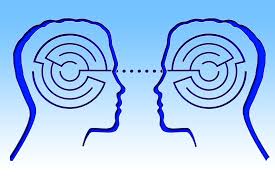
「あの人には徳がある」という言葉を、最近ではあまり聞かなくなったように
感じます。 広辞苑によれば、「徳(virtue)」とは「道をさとった立派な行為。善い
行ないをする性格。身についた品性」とのこと。これまで紹介してきたように、他人を
思いやり、徳を実践することは、他人だけでなく自分の幸せにもつながると言います。
幸せにつづく扉「徳(virtue)」を育てるための毎日の習慣とは――ダライ・ラマの解説を
バイリンガルでお届けします。
One method that is very helpful in sustaining us in the life-long task of transformation is
to adopt a daily routine which can be adjusted according to our progress.
自分を変えていくのは、一生をかけてのたいへんな仕事です。それに負けないように
するためには、自分の進歩に合わせて調整できるような日課を取りいれることが、
大きな助けとなるでしょう。
Of course, as with the practice of virtue in general, this is something religious practice
encourages. But that is no reason why non-believers should not use some of the ideas
and techniques which have served humanity so well over the course of millennia.
もちろん、全般的な徳の実践とならんで、これは宗教の世界で勧められていること
です。しかし、無宗教の人もこれを利用しない手はありません。過去一千年以上に
わたって、人類のために大いに役立ってきた考えや技法のひとつなのですから。
Making a habit of concern for others’ well-being, and spending a few minutes on waking
in the morning reflecting on the value of conducting our lives in an ethically disciplined
manner, is a good way to start the day no materr what our beliefs or lack of them.
他人の幸福を考える癖をつけ、朝目覚めたときの数分間を、道徳的に生きることの価値
を考えるのに使ったなら、これは宗教を信じる信じないにかかわらず、だれにとっても
気持ちのよい一日の始まりになるのではないでしょうか。
The same is true of taking some time at the end of each day to review how successful in
this we have been. Such a discipline is very helpful in developing our determination not
to behave self-indulgently.
一日の終わりについても同じです。寝る前にほんの少し、この一日を道徳的に
生きられただろうかとふりかえってみるなら、気持ちよく眠りにつけるのでは
ないでしょうか。こうした日課をこなしていくことによって、わたしたちは日々、
自分勝手な行動をするまいと決意を固めていけるでしょう。
If these suggestions sound somewhat onerous to the reader searching not for nirvana or
salvation but simply for human happiness, it is worth reminding ourselves that what
brings us the greatest joy and satisfaction in life are those actions we undertake out of
concern for others.
そんな日課は煩わしいと思う人もいるかもしれません。自分は涅槃や救済を求めている
のではない、この世を幸せに暮らせればそれでいいと言うかもしれません。それなら、
思い出してください。わたしたちに人生における最大の喜びと満足をもたらしてくれる
のは、他人への配慮にもとづいて自らが引き受ける行動です。
Indeed, we can go further. For whereas the fundamental questions of human existence,
such as why we are here, where we are going, and whether the universe had
a beginning, have each elicited different responses in different philosophical traditions,
it is self-evident that a generous heart and wholesome actions lead to greater peace.
And it is equally clear that their negative counterparts bring undesirable consequences.
さらに、こうも言えます。人間という存在についての根本的な疑問、たとえば
わたしたちはなぜ存在しているのか、どこへ行こうとしているのか、宇宙には始まりが
あったのかといった疑問には、さまざまな思想からさまざまな答えが出されて
いますが、寛大な心と健全な行動が多くの人の平和につながることは、あらためて問う
必要もありません。その反対の心や行動が望ましくない結果につながることも、また
同じくらい明らかです。
Happiness arises from virtuous causes. If we desire to be happy, there is no other way to
proceed but by way of virtue: it is the method by which happiness is achieved. And, we
might add, that the basis of virtue, its ground, is ethical discipline.
幸せは、徳のある心から生まれます。ほんとうに幸せを望んでいるなら、徳を重ねる
以外に道はありません。これこそが、幸せに到達する方法なのです。徳の基盤となって
いるのは、つけ加えるまでもなく、道徳的な訓練なのです。

- 作者: Dalai Lama
- 出版社/メーカー: Riverhead Books
- 発売日: 2001/05/01
- メディア: ペーパーバック
- この商品を含むブログを見る

- 作者: ダライラマ14世テンジン・ギャッツォ,His Holiness The Dalai Lama,塩原通緒
- 出版社/メーカー: 角川春樹事務所
- 発売日: 2000/05
- メディア: 単行本
- クリック: 1回
- この商品を含むブログを見る

- 作者: His Holiness the Dalai Lama,Alexander Norman,B.D. Wong
- 出版社/メーカー: Simon & Schuster Audio
- 発売日: 2000/04/01
- メディア: CD
- この商品を含むブログを見る
■プライバシー・ポリシー
当ブログは、Amazon.co.jpを宣伝しリンクすることによってサイトが紹介料を獲得
できる手段を提供することを目的に設定されたアフィリエイト宣伝プログラムである、
Amazonアソシエイト・プログラムの参加者です。このプログラムにおいて、
第三者がコンテンツおよび宣伝を提供し、ユーザーからの情報を収集し、訪問者の
ブラウザーにクッキーを設定することがあります。プログラムにおいて情報の
扱いについてはAmazon.co.jpプライバシー規約をご確認ください。





